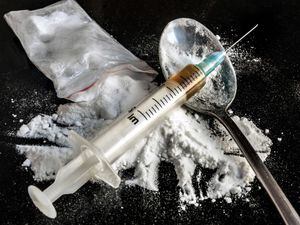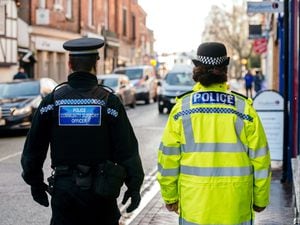More being drugs found at West Midlands prisons
More drugs than in previous years are being uncovered by staff during searches at prisons across the West Midlands, new figures reveal.

It comes as drug finds in jails across England and Wales reached a record high – but prison reform charity the Howard League has warned confiscations do not show “the true scale of the problem”.
Ministry of Justice data revealed that more than 1,000 searches uncovered drugs in the region’s prisons in the year up to March.
The worst offending prison was HMP Featherstone, near Wolverhampton, as drugs were discovered in 364 searches – significantly up from 264 carried out the previous year.
The figures include psychoactive substances, the abuse of which has increasingly become a concern for prison staff nationally, as well as so-called traditional drugs such as cannabis and methadone.
Over at HMP Brinswood, also in Featherstone and catering for young offenders, 118 searches found drugs in the same time period, up from 97 the year before.
However, in the nearby HMP Oakwood, data revealed 282 searches found drugs, but this was down from 352 the previous year.
At Drake Hall prison in Stafford, drugs were found in 158 searches – which was up by 27 compared to 2019.
And in Stafford prison drugs were found just six times, compared to 12 times the year before. Over the Shropshire border in Market Drayton at Stoke Heath prison, drugs were uncovered in 133 searches in the year to March 2020, up from 81 the year prior.
Scourge
Across England and Wales, a record 21,575 searches by prison staff revealed drugs in the same year.
Frances Crook, chief executive of the Howard League for Penal Reform, said drugs are a “scourge” in prisons.
She added of the situation in prisons currently: “Ministers have spent millions on tightening security, and this may be having an effect, but the best way to reduce the supply of drugs into prisons is to reduce the demand for them.
“Staff time spent monitoring scanners would be better deployed in building relationships and working with people in prison to keep them occupied with work, education, training and exercise.”
Ms Crook said this is one of the reasons why current Covid-19 restrictions in prisons should be eased “safely and as soon as possible”.
During the pandemic, prisoners have been unable to take part in recreational activities such as using gyms and libraries or going to worship, leaving many looking for other pastimes.
A Ministry of Justice spokesman said: “We are finding and stopping more drugs thanks to the tough new measures brought in by this Government, such as airport-style security and x-ray body scanners.”
He added that it would be “misleading” to draw conclusions on the impact of restricted prison regimes during lockdown.





